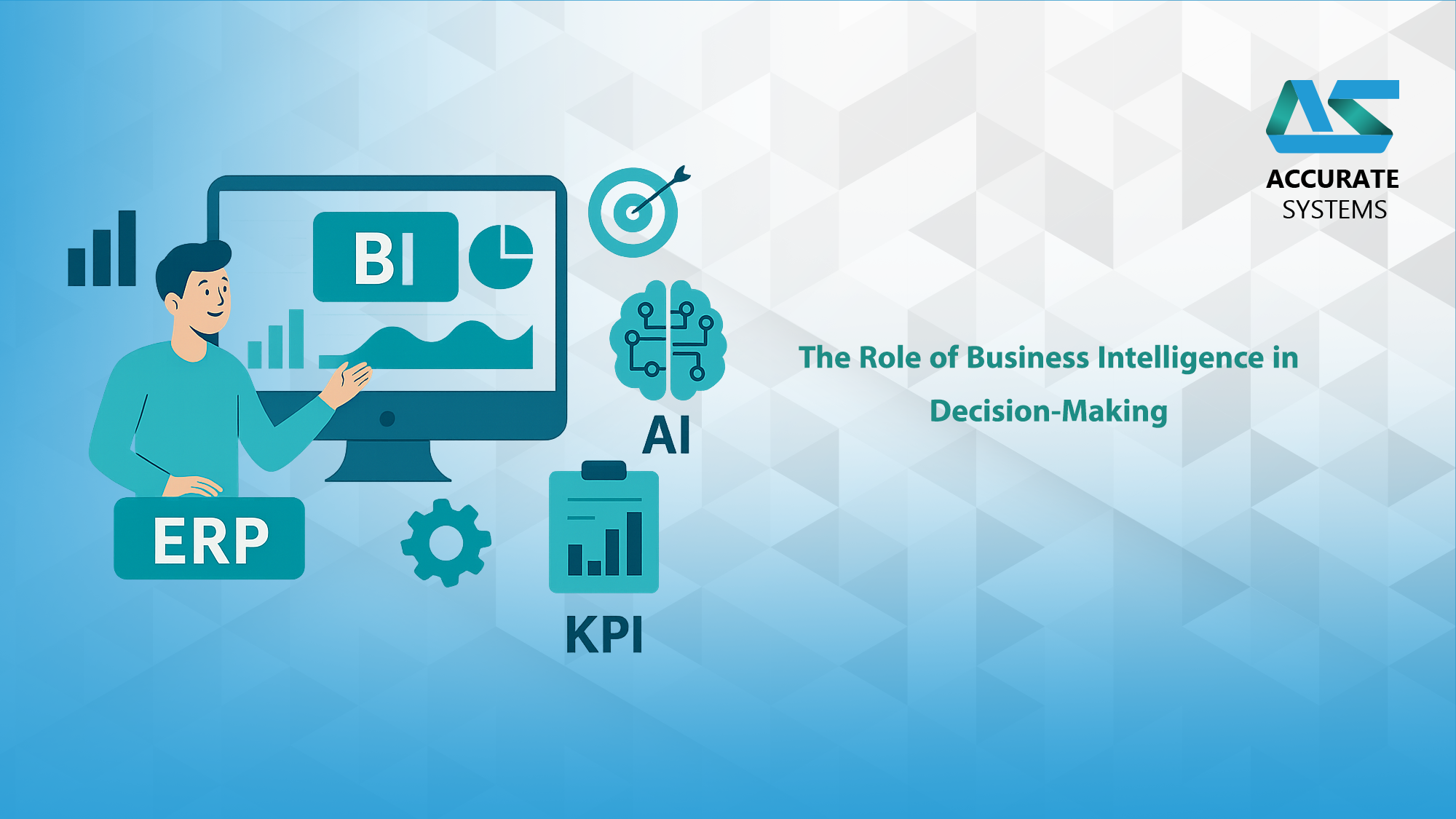What Is Business Intelligence (BI)?
Business Intelligence (BI) refers to a set of tools, technologies, and strategies used to analyze data and deliver actionable insights. BI helps organizations convert raw data into structured, useful information that supports data-driven decision-making at every level of the business.
BI solutions combine internal company data (sales, finance, operations) with external data (market trends, customer behavior) to provide real-time visibility and support informed strategic planning. In today’s fast-paced market, effective BI implementation can be a game-changer for companies seeking competitive advantage.
How Business Intelligence Improves Decision-Making
BI enables smarter decision-making by allowing organizations to:
✅ Monitor Business Performance
Track key performance indicators (KPIs) and metrics across departments with real-time dashboards and reports.
✅ Uncover Trends and Opportunities
Identify market trends, consumer behavior shifts, and performance gaps that help shape strategic planning.
✅ Enhance Operational Efficiency
Reveal inefficiencies and bottlenecks in operations, allowing companies to streamline workflows and reduce costs.
✅ Drive Customer-Centric Strategies
Analyze customer data to create personalized experiences, increase satisfaction, and boost retention.
✅ Enable Predictive Planning
Use historical data and forecasting models to prepare for demand changes, risks, and market developments.
✅ Make Faster, Data-Backed Decisions
Empower leaders and teams with timely, accurate insights that improve responsiveness and agility.
Top Business Intelligence Tools and Technologies
These modern BI tools are widely used across industries to drive intelligent decision-making:
1. Microsoft Power BI
Offers interactive dashboards, powerful data visualization, and seamless integration with Microsoft products.
2. Tableau
Known for its intuitive interface and advanced analytics features, ideal for data storytelling and visual analysis.
3. Qlik Sense
Provides smart data exploration, associative analytics, and drag-and-drop reporting.
4. Looker (Google Cloud)
A cloud-native BI tool that connects directly to modern databases with real-time insights.
5. SAP BusinessObjects
An enterprise-grade platform offering deep analytics, robust data modeling, and custom reporting.
6. ERP-Integrated BI (ERPNext + Metabase)
ERPNext connects with Metabase to deliver embedded analytics, financial dashboards, and performance insights.
7. ETL Platforms (e.g., Talend, Apache Nifi)
Help gather, clean, and transform data for BI analysis across multiple data sources.
Real-World Case Studies of BI in Action
🏢 Walmart
Uses BI for inventory optimization, trend analysis, and demand forecasting across global locations.
🏥 Cleveland Clinic
Applies BI tools to improve clinical workflows, monitor patient satisfaction, and optimize care delivery.
🛍️ Amazon
Leverages BI for dynamic pricing, customer segmentation, and real-time product recommendations.
📊 Accurate Systems (Saudi Arabia)
Implements ERPNext + BI dashboards to automate reporting, monitor sales pipelines, and enhance visibility across business units.
🏗️ Mid-Sized Manufacturer
Integrated IoT and BI to improve asset utilization and reduce machine downtime by 30% through predictive maintenance insights.
Future Trends in Business Intelligence
As BI continues to evolve, the following trends are shaping its future:
☁️ Cloud-Based BI Platforms
Offer scalability, remote access, and reduced infrastructure costs.
🤖 Augmented Analytics
Combine AI and BI to automate insight generation and data storytelling.
🗣️ Natural Language Query (NLQ)
Allows users to ask data questions in plain language, making BI more accessible.
📱 Mobile BI
Delivers insights on smartphones and tablets, enabling decision-making on the go.
🔐 Data Privacy and Governance
With data regulations tightening, BI platforms are incorporating compliance, auditing, and user access controls.
🔗 Embedded BI
Built-in BI modules are becoming standard in CRM, ERP, and project management software.
Conclusion: BI as a Competitive Advantage
Business Intelligence is essential for organizations aiming to remain agile and competitive in the digital age. BI tools help transform data into insights, empowering leaders to make informed decisions that drive growth and innovation.
Whether tracking KPIs, forecasting trends, or improving customer engagement, BI is the foundation of modern strategic planning. As technologies like AI and cloud computing expand, BI will continue to shape the future of enterprise decision-making.
#BusinessIntelligence #DataAnalytics #DecisionMaking #ERPNext #PowerBI #DigitalTransformation #AI #EnterpriseGrowth #BITrends #SmartBusiness


